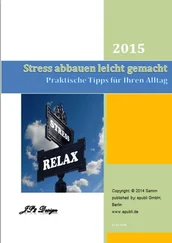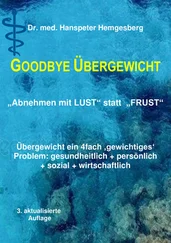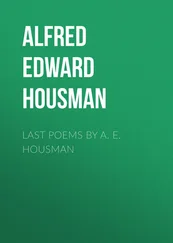His body was a graveyard of buried emotion; its symptoms were clustered around the same fundamental terror, like that rash of cemeteries they had just passed, clustered around the Thames. The nervous bladder, the spastic colon, the lower-back pain, the labile blood pressure that leapt from normal to dangerously high in a few seconds, at the creak of a floorboard or the thought of a thought, and the imperious insomnia that ruled over them, all pointed to an anxiety deep enough to disrupt his instincts and take control of the automatic processes of his body. Behaviours could be changed, attitudes modified, mentalities transformed, but it was hard to have a dialogue with the somatic habits of infancy. How could an infant express himself before he had a self to express, or the words to express what he didn’t yet have? Only the dumb language of injury and illness was abundantly available. There was screaming of course, if it was allowed.
He could remember, when he was three years old, standing beside the swimming pool in France looking at the water with apprehensive longing, wishing he knew how to swim. Suddenly he felt himself being hoisted off the ground and thrown high in the air. With the slowness of horror, when the density of impressions registered by the panic-stricken mind makes time thicken, he used all the incredulity and alarm that rushed into his thrashing body to distance himself from the lethal liquid he had been warned so often not to fall into by accident, but soon enough he plunged down into the drowning pool, kicking and beating the thin water until at last he broke the surface and sucked in some air before he sank back down again. He fought for his life in a chaos of jerks and gulps, sometimes taking in air and sometimes water, until finally he managed to graze his fingers on the rough stone edge of the pool and he gave in to sobbing as quietly as possible, swallowing his despair, knowing that if he made too much noise his father would do something really violent and unkind.
David sat in his dark glasses smoking a cigar, angled away from Patrick, a jaundiced cloud of pastis on the table in front of him, extolling his educational methods to Nicholas Pratt: the stimulation of an instinct to survive; the development of self-sufficiency; an antidote to maternal mollycoddling; in the end, the benefits were so self-evident that only the stupidity and sheepishness of the herd could explain why every three-year-old was not chucked into the deep end of a swimming pool before he knew how to swim.
Robert’s curiosity about his grandfather had prompted Patrick to tell him the story of his first swimming lesson. He felt that it would be too burdensome to tell his son about David’s beatings and sexual assaults, but at the same time wanted to give Robert a glimpse of his grandfather’s harshness. Robert was completely shocked.
‘That’s so horrible,’ he said. ‘I mean a three-year-old would think he was dying. In fact, you could have died,’ he added, giving Patrick a reassuring hug, as if he sensed that the threat was not completely over.
Robert’s empathy overwhelmed Patrick with the reality of what he had taken to be a relatively innocuous anecdote. He could hardly sleep and when he did he was soon woken by his pounding heart. He was hungry all the time but could not digest anything he ate. He could not digest the fact that his father was a man who had wanted to kill him, who would rather have drowned him than taught him to swim, a man who boasted of shooting someone in the head because he had screamed too much, and might shoot Patrick in the head as well, if he made too much noise.
At three of course Patrick would have been able to speak, even if he was forbidden to say what was troubling him. Earlier than that, without the sustenance of narrative, his active memory disintegrated and disappeared. In these darker realms the only clues were lodged in his body, and in one or two stories his mother had told him about his very early life. Here again his father’s intolerance of screaming was pivotal, exiling Patrick and his mother to the freezing attic of the Cornish house during the winter he was born.
He sank a little deeper into the passenger seat. As he recognized that he had gone on expecting to be suffocated or dropped, he felt the suffocation and vertigo of the expectations themselves, and if he asked himself whether infancy was destiny, he felt the suffocation and the vertigo of the question. He could feel the weight of his body and the weight on his body. It was like a restraining wall, buckled and sweating from the pressure of the hillside behind it; the only means of access, and at the same time a ferocious guard against the formless miseries of infancy. This was what Johnny might want to call a pre-Oedipal problem, but whatever name was given to a nameless unease, Patrick felt that his tentative new vitality depended on a preparedness to dig into that body of buried emotion and let it join the flow of contemporary feeling. He must pay more attention to the scant evidence that came his way. A strange and upsetting dream had woken him last night, but now it had slipped away and he couldn’t get it back.
He understood intuitively that his mother’s death was a crisis strong enough to shake his defences. The sudden absence of the woman who had brought him into the world was a fleeting opportunity to bring something slightly new into the world instead. It was important to be realistic: the present was the top layer of the past, not the extravaganza of novelty peddled by people like Seamus and Annette; but even something slightly new could be the layer underneath something slightly newer. He mustn’t miss his chance, or his body would keep him living under its misguided heroic strain, like a Japanese soldier who has never been told the news of surrender and continues to booby-trap his patch of jungle, and prepare for the honour of a self-inflicted death.
Nauseating as it was to upgrade his father’s cruelty to the ‘front of the plane’ in homicidal class, he felt an even greater reluctance to renounce his childhood view of his mother as the co-victim of David’s tempestuous malice. The deeper truth that he had been a toy in the sadomasochistic relationship between his parents was not, until now, something he could bear to contemplate. He clung to the flimsy protection of thinking that his mother was a loving woman who had struggled to satisfy his needs, rather than acknowledging that she had used him as an extension of her lust for humiliation. How self-serving was the story of the freezing attic? It certainly reinforced the picture of Eleanor as a fellow refugee escaping with burns on her back and a baby in her arms from the incendiary bombs of David’s rage and self-destruction. Even when Patrick found the courage to tell her that he had been raped by his father, she had rushed to say, ‘Me too.’ Falling over herself to be a victim, Eleanor seemed indifferent to the impact that her stories might be having at any other level. Suffocated, dropped, born of rape as well as born to be raped — what did it matter, as long as Patrick realized how difficult it had been for her and how far she was from having collaborated with their persecutor. When Patrick asked why she didn’t leave, she had said she was afraid that David would kill her, but since he had already twice tried to kill her when they were living together, it was hard to see how living apart would have made it more likely. The truth, which made his blood pressure shoot up as he admitted it, was that she craved the extreme violence of David’s presence, and that she threw her son into the bargain. Patrick wanted to stop the car and get out and walk; he wanted a shot of whisky, a shot of heroin, a revolver shot in the head — kill the screaming man, get it over with, be in charge. He let these impulses wash over him without paying them too much attention.
Читать дальше












